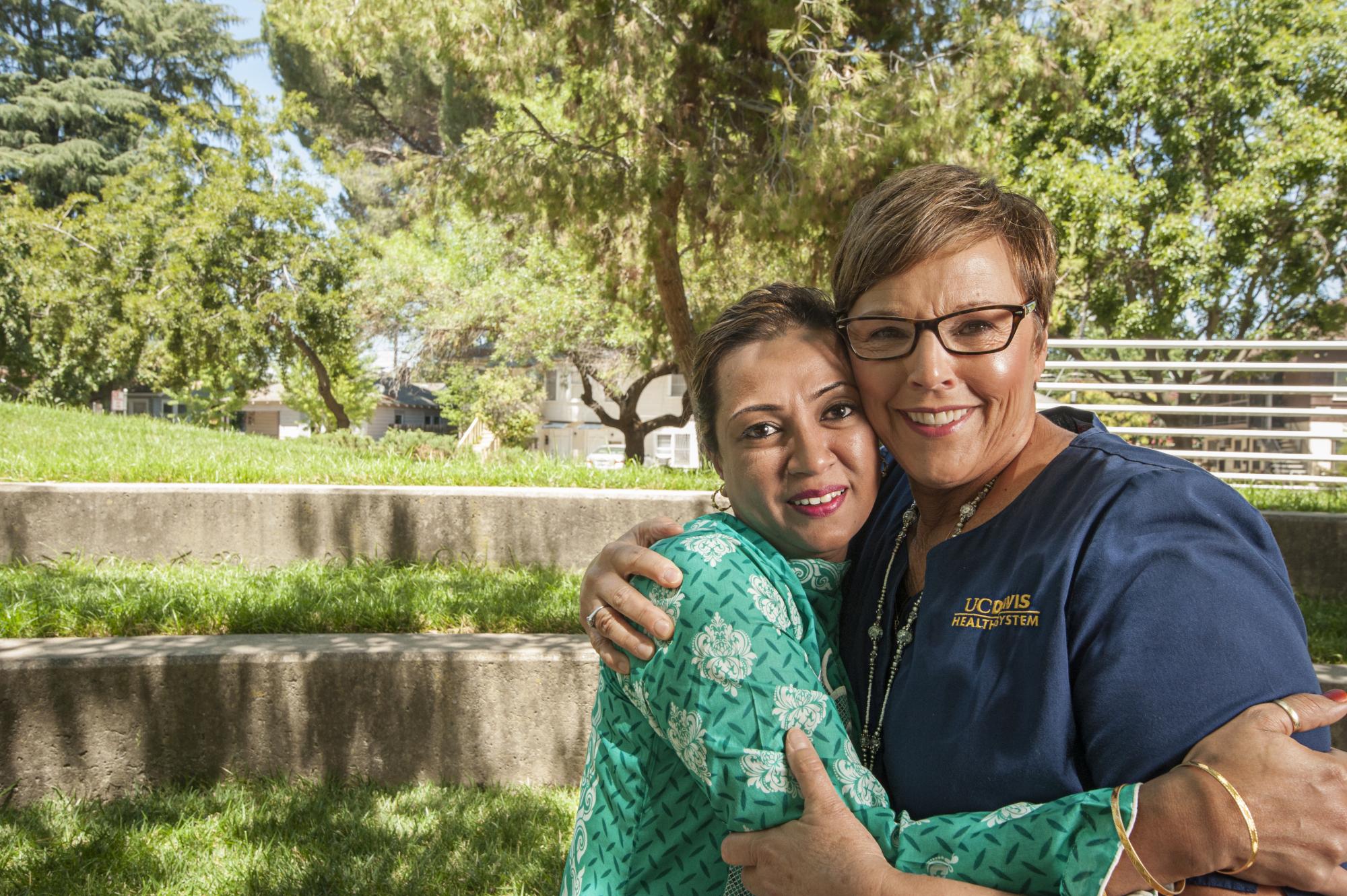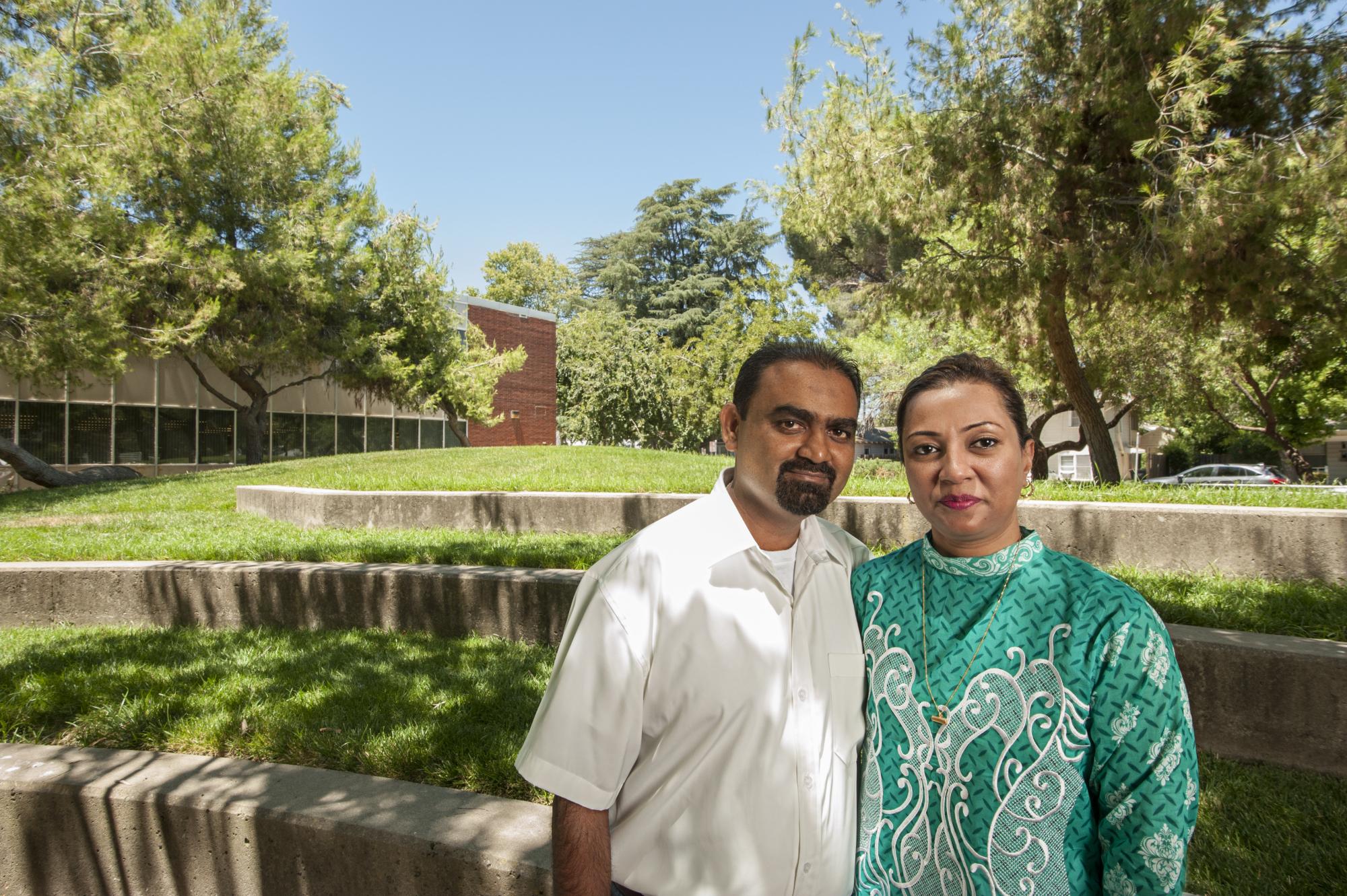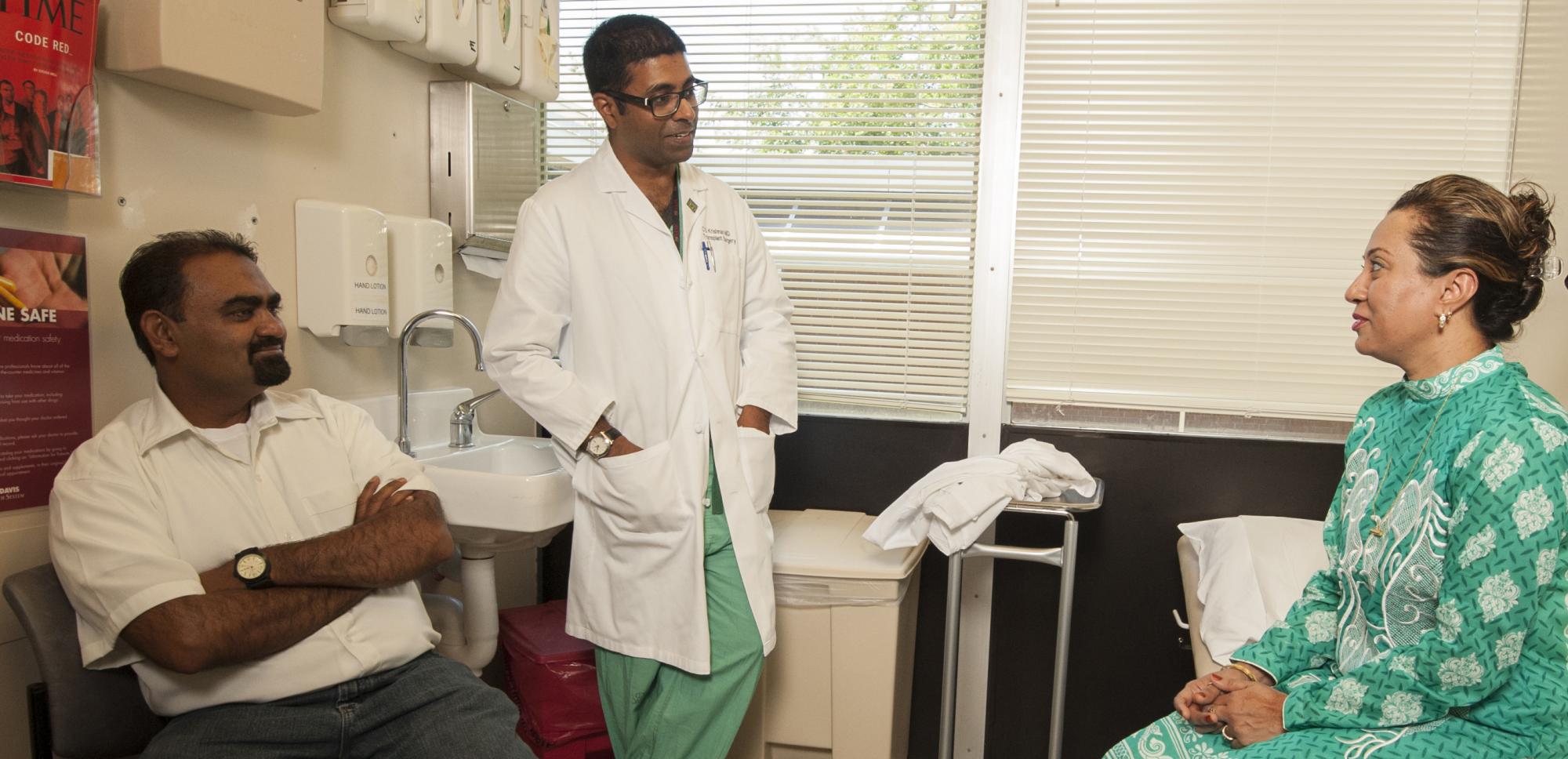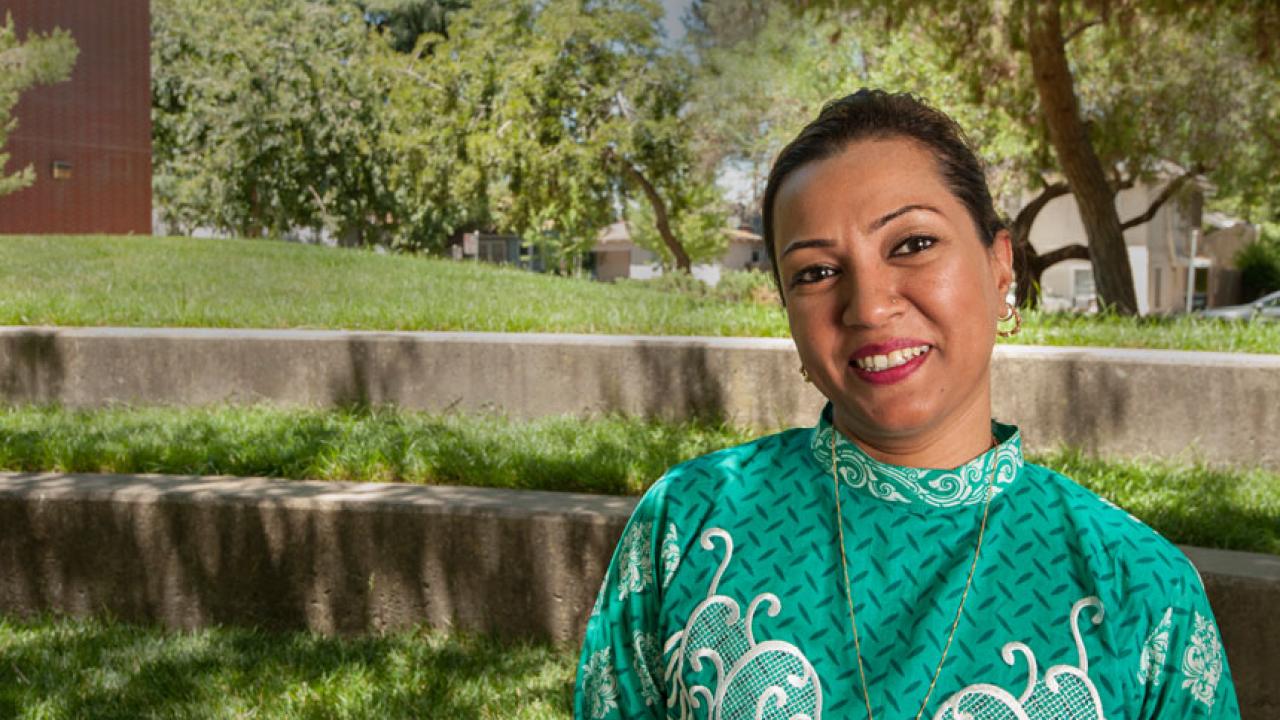Yasmeen Khan is a positive person. Even when her husband was experiencing renal failure and was put on the transplant list for a new kidney, her sunny disposition forced out any bad thoughts.
Instead, she focused on what she could do. The senior custodial supervisor at UC Davis Student Housing volunteered to be a living donor, got tested and found out she was a match. She gave him her right kidney in March.
The process was a long one. In fact, two different times, the surgery at the UC Davis Transplant Center was delayed for six months due to the need for more tests (to guarantee the patients are perfectly primed for surgery). The experience was enough to bring anyone down.
“I felt like, wow, everything is happening for a good reason,” Khan said. “There was no point when I was thinking negatively.”
A way to help
Thanks to improved medications, a genetic link between the donor and recipient is no longer required to ensure a successful transplant. Now, in order to match, a donor and recipient need compatible blood types and the absence of strong antibodies against the genes of the donor.
As a result, donations between spouses have become more common over the years.

“One of the things that drives many donors is they are in a household that can be dramatically changed by the health of the recipient,” said Michelle Sturges, transplant coordinator with the UC Davis Health System. “Their household, as a whole, gets much more normal with that donation. Especially for spouses, it can be life-altering.”
Altruism is another big motivation, said Janet Oleson, who was Kahn’s independent donor advocate at the UC Davis Medical Center and retired at the end of June.
“The altruistic aspect — the act of giving a body organ — is underestimated,” Oleson said. “We tell people they aren’t saving lives, because with kidney failure you have treatment options, but providing quantity of life. Living donation is at the top of the scale.”
A kidney from a living donor also provides more benefits to the recipient than one from a deceased donor. For example, live donor kidneys last twice as long — an average of 20 years. They can also eliminate the need for dialysis because they may cut down the long wait time on the national donor list.
The ideal match
For Khan, the decision to donate was easy. She and her husband, Mohammed Faiyaz, have been married for 23 years. His diabetes was a part of their life. He was diagnosed at 19.
“We are very family-oriented,” Khan said. “Our relationship — being married so long — and being there for each other made things a lot easier.”

The couple’s children, son Mohammed Faraad, 22, and daughter Fardila Faiyaz, 20, had also volunteered to donate but were ruled out. But Khan was deemed a match. (Coincidentally, Student Housing co-worker Mike Sheehan gave a kidney to a college friend in 2014 and talked about it with Dateline.)
After the surgery, Khan spent three nights in the hospital and took eight weeks to recover before returning to work in April. Her husband was discharged after four days and is doing well. He now takes anti-rejection medication and has bloodwork done once a week to monitor kidney function.
Khan’s side effects have been minimal, and her regular energy level eventually returned. Going forward, she will have her kidney function tested after six months, a year and two years. Her donor advocate also will follow up.
“We have some interesting conversations about how it’s been,” said Oleson. “I’d say about 99 percent of my patients say they would do it again in a heartbeat.”
Being a living donor
The UC Davis Transplant Center performs about 70 living donor transplants per year.
Altogether, more than 101,000 Americans are waiting for a kidney, and about 17,000 people receive one each year (of these, about 5,500 come from living donors), according to the National Kidney Foundation.

For the donor, much of the process is about education. Enter the transplant coordinator and independent donor advocate, who provide information about the risks and investigate the donor’s motivations. And they consistently give them the option to get out.
“It’s not for everybody,” said Sturges. “So we tell donors they can change their minds up until the time that the wheels roll into the operating room.”
If they do opt out, Oleson said, they can still help, by becoming donor champions who help spread the word, for instance.
But Kahn never wavered on her choice. “I was ready from the get-go,” she said. And she will share her story with the Living Donor Education and Support Group later this year.
True to her personality, she will tell a positive story.
“I can see the future now — what it’s going to be like to have grandkids,” said Khan. “I always like to explore things and think of ways to make it better. If you make one thing better, it really makes a difference.”
Media Resources
Jocelyn Anderson
